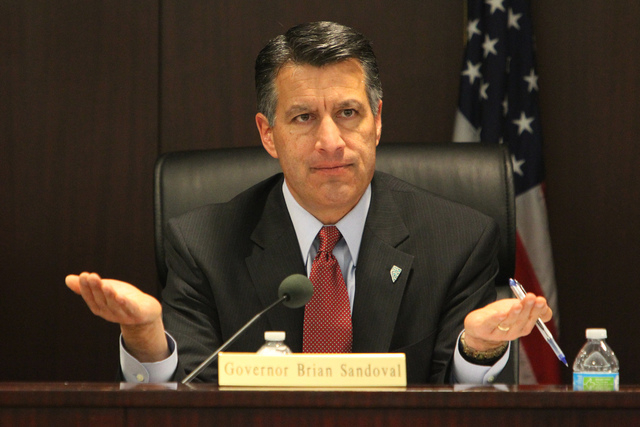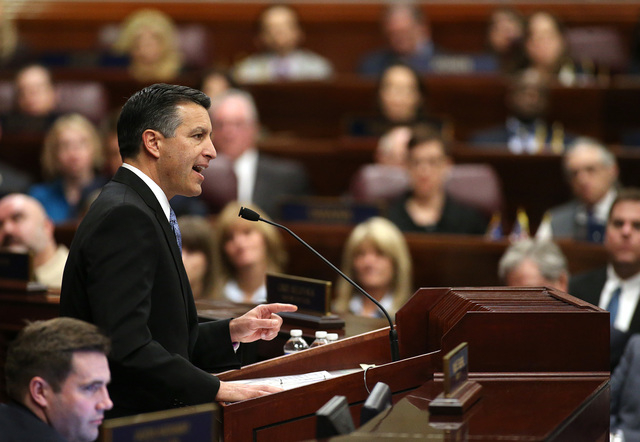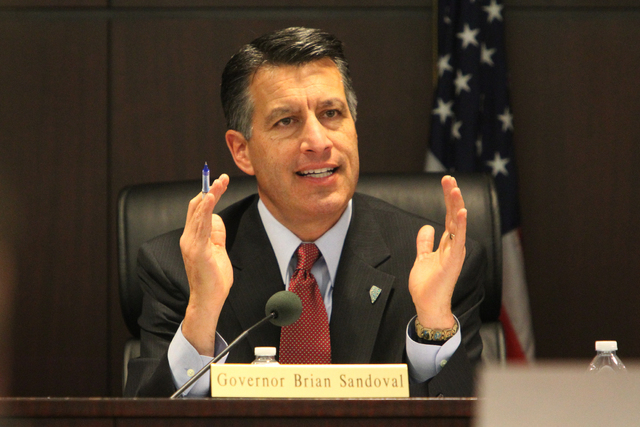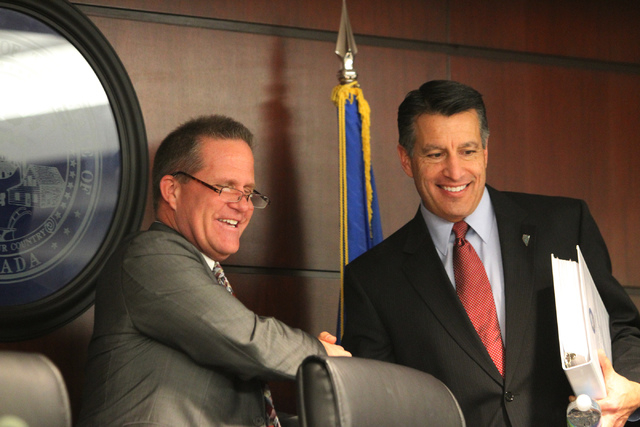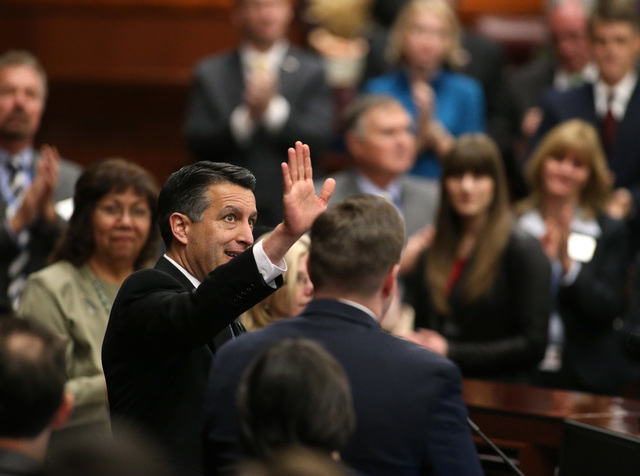Nevada has waited a long time for the year of real reform
As far back as 2006, we all knew the year of real reform would be 2015.
In 2006, Republican Rep. Jim Gibbons survived campaign-trail scandal to stumble his way into a one-term governorship characterized by texting, divorce, vetoes and periods of time where staffers weren’t entirely sure of the governor’s physical location. It was clear 2010 would see a change at the top.
Many of us thought that change would come at the hands of a Democrat: Clark County Commissioner Rory Reid geared up for a run against the politically mortally wounded Gibbons. But we seriously underestimated Republican establishment players, who refused to let Democrats post an easy victory.
Two of their most prominent consultants — Pete Ernaut of R&R Advertising, and Greg Ferraro of the Ferraro Group — visited their childhood friend Brian Sandoval, then serving a lifetime appointment as a U.S. District Court judge in Reno. They coaxed him to leave that job and run for governor against Gibbons in a Republican primary.
This, by the way, is one of the events that make “consultant” an epithet among the tea party/libertarian base of the Republican Party; Gibbons was many things, but he was a conservative. He kept his promise to veto all tax increases. (In fact, he had a party on the front porch of his office, proudly waving copies of rejected bills scarred by his custom-made “veto” stamp.)
But two establishment Republicans came along and recruited one of their own to take out the conservative Gibbons, the first time in state history an incumbent governor failed to receive the nomination of his own party for re-election.
Still, reform was years away: Both Reid and Sandoval echoed Gibbons’ campaign-trail call for no new taxes. Nevada was still in the grips of the downturn that left the state with the highest unemployment the nation, the highest foreclosure rate and lagging visitor numbers. No matter who won the 2010 election, it appeared the 2011 and 2013 legislative sessions would see no real tax reforms.
And that’s exactly what happened: Sandoval cruised to a 53 percent to 42 percent victory over Reid, and was appropriately parsimonious with his budgets. (Sandoval did twice extend a package of expiring taxes, although he’d said on the campaign trail that doing so constituted a tax increase, after a state Supreme Court ruling in 2011 blocked the state from robbing local government funds for money to buttress the ailing state budget.) And while then-Democratic Speaker John Oceguera and then-Senate Majority Leader Steven Horsford tried to get momentum behind a margins tax package toward the end of the 2011 session, nothing came of it. Ditto for efforts by then-Speaker Marilyn Kirkpatrick’s attempt to revise the Live Entertainment Tax in 2013, and a voter initiative to impose a 2 percent margins tax in 2014.
No, the year for reform was always going to be 2015, when whomever had been elected governor in 2010 would have been safely re-elected to a second and final term in the governor’s mansion, when the effects of the recession began to fade and when the state’s economy had begun to turn around.
The fact that it’s a Republican who’s proposing the tax increase to a Legislature newly controlled by the Republican Party is freighted with irony, although it’s not completely unprecedented. The last serious tax proposal to be heard in the Legislature was also made by a Republican governor — the late Kenny Guinn, way back in 2003 — to a Senate controlled by Republicans and an Assembly where dissident conservatives bedeviled the idea, almost the exact scenario we’re seeing today.
The question now is, if the Legislature balks at adopting Sandoval’s proposed tax or a revenue-based variant thereof, either because of politics or partisanship, just how many more years will the state have to wait for real reform? It’s not an idle question, and it’s one that both Democrats and Republicans should ponder before the session kicks off in a little more than a week. Because waiting for the 2023 session — at the earliest — just isn’t an option.
Steve Sebelius is a Las Vegas Review-Journal political columnist who blogs at SlashPolitics.com. Follow him on Twitter (@SteveSebelius) or reach him at 702-387-5276 or ssebelius@reviewjournal.com.

RELATED STORIES
PERS points out weaknesses in Nevada think tank’s retirement study
New Reno veterans home among Sandoval’s goals
Study: Many public-sector retirees making more than they did on job
Sandoval budget would boost autism funding in Nevada
Nevada legislators hear proposed budgets for new UNLV, DMV buildings
Nevada officials reveal plans to trim budget shortfall this year
Sandoval proposes big boost in Nevada education funding
Sandoval proposes $7.3 billion spending plan for Nevada
New year could bring big changes in state
See all of our coverage: 2015 Nevada Legislature.



